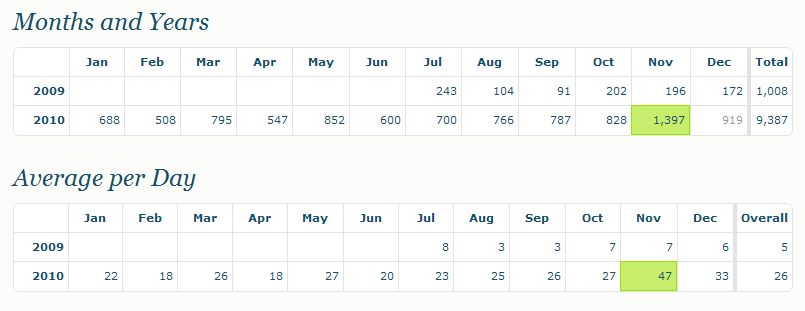Learner and Teacher Autonomy
Prem Phyak
I welcome all colleagues to the July 2010 Issue of NeltaChoutari. The theme of this issue is learner and teacher autonomy. The articles published in this issue have focused on the correlation between learner and teacher autonomy.
Learner autonomy is concerned with developing learners’ ability to explore ideas through various means, discuss, analyse, and evaluate them, and develop their own view points towards a particular issue. It is a process in which students are actively involved in a constant negotiation of meaning through interaction with friends in the classroom to identify common views among diverse voices. Moreover, in learner autonomy, learners take active role rather than being a passive recipient of what teachers say in the classroom. To be specific, an autonomous leaner is critical, exploratory and independent. But it is true that without being ourselves autonomous teachers (described below), we cannot make our students autonomous learners.
Two articles What is Learner Autonomy and How Can It Be Fostered? (Thanasoulas, 2000) and Learner Autonomy: Bird-in-the-hand or Bird-in-the-bush? (Sheu, 2001) have been included as lead articles. The first article defines learner autonomy, discusses theories underpinning it and provides some practical activities for fostering learner autonomy.
Learner autonomy is defined as a learning process in which learners learn independently. It is learners’ ability to cope with process of learning utilising their own learning styles. In this regard, Thanasoulas (2000) argues that an autonomous learner is an active agent in the learning process. Likewise, Little (1991:4) defines it as “a capacity for detachment, critical reflection, decision making, and independent action.” Heather Ashley Hager discusses the Win-Win Approach as an approach to resolve dispute and develop critical thinking skill which are important aspects of learner autonomy. She also discusses how our effort to foster critical thinking and dispute resolution skills in the classroom makes a great impact in politics and social development.
In learner autonomy, learning is considered as a constructive process in which learners actively participate in exploring meanings which fit in their world views. Learners are not passive recipients of knowledge but an important source of constructing new knowledge. In this sense, in the autonomous learning process, the bottom-up process in which learners are put at the centre is adopted rather than the top-down in which teachers seek to transmit what they have in their head to the students.
Thanasoulas further says that “Learner autonomy consists in becoming aware of, and identifying, one’s strategies, needs, and goals as a learner, and having the opportunity to reconsider and refashion approaches and procedures for optimal learning.” This clearly tells us that learners must be aware of their own learning styles or strategies. This implies that without identifying the needs and goals of learners, teachers cannot facilitate them towards being an autonomous.
With an extensive review of the literature on learner autonomy, Thanasoulas argues that the objective of language teaching should be to produce an autonomous learner. Without promoting autonomy, we can, of course, question or doubt on sustainability and effectiveness of any language teaching program. He also discusses activities (e.g. self-reports, diaries and so on) that promote learners autonomy. The activities mentioned in the article can be used in our own teaching. For details please go through the article.
However, learners’ beliefs and attitudes towards learning, teachers and themselves are very important factors to shape learner autonomy. For example, in my contexts learners expect notes through dictation, as mentioned by Madhu Neupane in her article in this issue of NeltaChoutari, from teachers and they consider teachers’ ideas as a final source of knowledge. Even the master’s level students do not go through the books prescribed in the course. They ask teachers to give notes. They never ask questions in the classroom. This is the continuity of how children are taught in schools in Nepal. When I was in school, I was never asked to read the passages and discuss with friends to answer questions based on the text. Teachers used to give us answers. Moreover, I was never asked to write a paragraph or essay myself. Teachers used to dictate us all essays on discipline, value of time, river in Nepal etc., for example and we should parrot them line-by-line. This is similar to what Ashok Raj Khati shares in his article in this issue. The same learning style gets continuity upto higher level.
In another article, Sheu (2001) opines that the degree of learner autonomy is not only an individual process but it is determined by the whole teaching system. I agree with him. For example, my students are not motivated to learn themselves independently. There are two reasons behind this. First, the whole evaluation system of university is so limited that students’ performance is evaluated on the basis of a 4-hour written examination in which they have to answer the structured questions asked from the syllabus. They cannot put their views and critiques. They have to write what the teachers say but not their own judgement and opinions. Second, teachers have to finish the whole course within a limited time frame. So they focus mainly on finishing the course by delivering lectures and giving notes rather than involving students in independent works. Moreover, as the students are evaluated on the basis only what they score in the examinations, they do not see any relevance of reading more books, articles and judging them from their own perspectives. Sheu, referring to Smith (2001), argues that learner autonomy is correlated with teacher autonomy. If teachers do not believe in the exploratory learning, involve students in classroom interaction, try bringing changes within the teaching system where they work, and have their own idiosyncratic way of teaching for better learning of students, there is no point in discussing the value of learner autonomy. At the same time, teachers can be an agent of change by giving students active role in the learning process. This implies that teacher autonomy is important for learner autonomy.
Learner autonomy is not only individual but also social. And it is not only a product but also a process. We cannot produce a 100% autonomous leaner. Autonomy always remains in degree and process. In order to enhance autonomy, learners need to be engaged in interaction in which they get chance to negotiate their views. At some point, I find that the concept of learner autonomy is sometimes contradictory with the concept of learning through interaction and collaboration. This tension is intense if we take learner autonomy as an individual. To sum, the theory behind learner autonomy has to integrate social-cultural factors too. A discussion on process vs. product of learner autonomy has to be backed up by some empirical studies. The ways teachers present themselves in the classroom also determine the degree of learner autonomy.
I hope the articles in this issue will help colleagues to explore further issues of leaner and teacher autonomy in their own contexts. I expect that colleagues will come with new ideas on learner and teacher autonomy.
Thank you to all contributors of this issue of NeltaChoutari.
Happy readings!
Prem Phyak
Editor
NeltaChoutari, July 2010 Issue
References
Little, D. (1991). Learner autonomy 1: Definitions, issues and problems. Dublin: Authentik.
Sheu, S. P-H. (2001). Learner Autonomy: Bird-in-the-hand or Bird-in-the-bush? Available at http://coyote.miyazaki-mu.ac.jp/learnerdev/LLE/8.1/sheuE.html
Thanasoulas, D. (2000).’What is Learner Autonomy and How Can It Be Fostered?’ The Internet TESL Journal, Vol. VI, No. 11. Available at http://iteslj.org/Articles/Thanasoulas-Autonomy.html
TABLE OF CONTENTS
-
-
-
-
-
Like this:
Like Loading...

